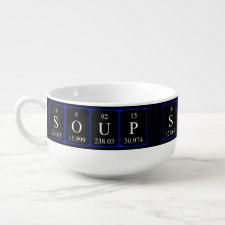
Authors: Hua ZD, Zhou S, Zhao MP
Article Title: Fabrication of a surface imprinted hydrogel shell over silica microspheres using bovine serum albumin as a model protein template.
Publication date: 2009
Journal: Biosensors and Bioelectronics
Volume: 25
Issue: (3)
Page numbers: 615-622.
DOI: 10.1016/j.bios.2009.01.027
Alternative URL: http://www.sciencedirect.com/science/article/B6TFC-4VH4DC7-4/2/d327a073bc227791cbfe705500b0b527
Abstract: Surface imprinting is an effective approach to improve the template transfer efficiency in applications of molecularly imprinted polymers as biosensors and separation materials. In this paper, we tried to fabricate a surface imprinted hydrogel over silica microspheres for selective recognition of bovine serum albumin by covalent immobilization of a water-soluble UV sensitive initiator onto the surface of silica beads. The polymerization was initiated by UV radiation with N-[3-(dimethylamino)propyl]methacrylamide and N-isopropylacrylamide as the functional monomer and assistant monomer, respectively, and a thin coat of stimuli-responsive hydrogel yielded over the silica gels. The surface imprinted hydrogels exhibited specific affinity toward the template protein with an association constant (Ka) of 2.2áÎá105áLámol-1 and a maximum binding capacity (Qmax) of 27.3ámgág-1 in Tris-HCl buffer (pH 7.0). The rebinding and desorption kinetics of the surface imprinted hydrogels were determined and proven to be extremely fast (about 1ámin compared to 3áh for the previously prepared bulk imprinted hydrogel). Besides, the hydrogel-silica core-shell particles inherit both the stimuli-responsive property of the hydrogel and the good mechanical strength of the silica beads based on the on-line evaluation with high-performance liquid chromatography. The above comprehensive merits of the obtained surface imprinted hydrogel suggest the presented approach an attractive and broadly applicable way of developing biosensors and high-performance protein separation materials
Template and target information: protein, BSA, bovine serum albumin
Author keywords: surface imprinting, hydrogel, Bovine serum albumin, Silica microsphere



Join the Society for Molecular Imprinting

New items RSS feed
Sign-up for e-mail updates:
Choose between receiving an occasional newsletter or more frequent e-mail alerts.
Click here to go to the sign-up page.
Is your name elemental or peptidic? Enter your name and find out by clicking either of the buttons below!
Other products you may like:
 MIPdatabase
MIPdatabase









